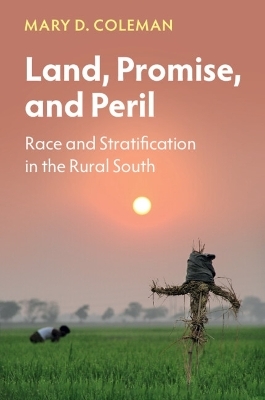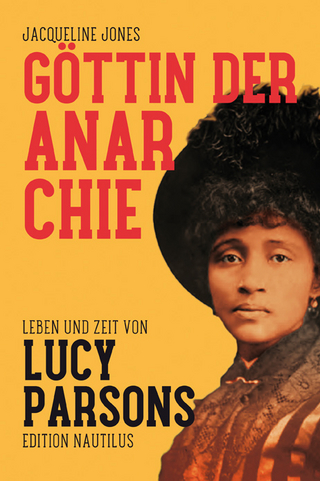
Land, Promise, and Peril
Cambridge University Press (Verlag)
978-1-009-18255-3 (ISBN)
In Langston Hughes' 'Mother to Son,' (1922), written at a time of dramatic disruption in the American economy and continued tyranny in the lives of Black people, urban and rural, the Mother pleads with the child not to give up. She tells the child that she has been 'a climbing on, reaching landings and turning corners.' Not only did the seven families chronicled in this unique study not give up, while both losing and gaining ground, they managed to sponsor a generation of children, several of whom reached the middle and upper-middle classes. Land, Promise, and Peril chronicles the actions, actors, and events that propelled legal racism and quelled it, showing how leadership and political institutions play a crucial role in shaping the pace and quality of exits from poverty. Despite great odds, some domestics, sharecroppers, tenants, and farmers and their children navigated pathways toward the middle class and beyond.
Mary Coleman is the Senior Vice President and Chief Operating Officer of Economic Mobility Pathways (EMPath), a Boston-based non-profit that disrupts poverty through direct services, advocacy, research, and a global learning network. As a child and adult, mentor, college professor, administrator, and citizen Mary has wanted to know why and how working poor families exit poverty and sustain their exits across generations. Working in dispossessed lands across four continents, and as a child who attended both segregated and desegregated public schools, she knows first-hand that prospects for a decent world are explicitly linked to opportunities for intergenerational familial and national thriving.
Preface; Acknowledgements; Part I. The Family in an Intemperate Community, State, and Nation: 1. Families' cross-century struggles to leave dispossession behind; 2. The sunflower county delta; 3. Multigenerational injury, insult, and adversity; 4. Patterns of dispossession; 5. Manufactured and natural disasters; 6. Position-taking in the nation; Part II. Family Interiority and Economic Mobility Pathways: 7. Perennial sharecroppers; 8. Quasi-croppers; 9. The mule-renter; 10. The kinship farmers; 11. Contemporaries of the second generation of the sunflower seven; 12. The central hills family in struggle; Part III. Pathways Toward Upward Economic Mobility: 13. Beyond caste in higher education; 14. The war on poverty in sunflower; 15. What the scholarship tells us; 16. Insights and valedictory; Epilogue; Bibliography; Index.
| Erscheinungsdatum | 10.08.2024 |
|---|---|
| Reihe/Serie | Cambridge Studies in Stratification Economics: Economics and Social Identity |
| Zusatzinfo | Worked examples or Exercises |
| Verlagsort | Cambridge |
| Sprache | englisch |
| Maße | 152 x 229 mm |
| Gewicht | 558 g |
| Themenwelt | Sozialwissenschaften ► Ethnologie |
| Sozialwissenschaften ► Soziologie ► Makrosoziologie | |
| ISBN-10 | 1-009-18255-2 / 1009182552 |
| ISBN-13 | 978-1-009-18255-3 / 9781009182553 |
| Zustand | Neuware |
| Haben Sie eine Frage zum Produkt? |
aus dem Bereich


